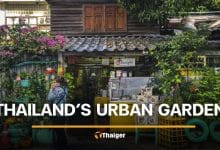Two monks elevated to Deputy Supreme Patriarchs of Thailand

The Thai monastic community recently witnessed a significant elevation in the ranks of its members with the royal proclamation bestowing high ecclesiastical titles upon two distinguished monks. The announcement, which took place yesterday, and was published today, in the Royal Gazette, marks a momentous occasion in the current era of King Rama X, which began in 2016.
The two venerable monks, previously known as Shaun and Anil Sakya, have been elevated to the rank of Deputy Supreme Patriarch, a prestigious position within the Thai Buddhist hierarchy. Shaun, born on January 7, 1958, in the Isle of Wight, England, is widely recognised for his contributions to Buddhism and Thai society.
In recognition of his service, Shaun was awarded an honorary doctorate by the Mahachulalongkornrajavidyalaya University on March 23, 2011. His commitment to social and educational causes also garnered him the Peace Education Award on November 22, 2006, and he was honoured by the Ministry of Culture as an Outstanding User of the Thai Language in 2010.
Anil Sakya, born on June 18, 1960, in Nepal, shares a lineage with the Buddha’s own Shakya clan. He has a storied history, having been ordained in Nepal and later taking higher ordination at Wat Bowonniwet Vihara in Bangkok with the support of the Supreme Patriarch.
Anil has since been appointed as an assistant secretary to the Supreme Patriarch and holds several key positions within the monastic community, including the Dean of the International Buddhist Studies College.
The royal decree emphasises the monks’ dedication to the promotion of Buddhism and acknowledges their considerable efforts in upholding the religion’s teachings and practices. Their new titles, Phra Rajakana Chan and Phra Rajakana Anilman, come with the responsibility of supporting the spiritual leadership of the country and guiding the faithful in their religious lives.
The elevation of Shaun and Anil to these high ranks is a celebration of their lifelong devotion to Buddhism and their influence on the religious and cultural fabric of Thailand.
Their appointments serve as an inspiration to many, and their stories highlight the inclusive nature of Thai Buddhism, welcoming and honouring contributions from both native Thais and international members of the Sangha, reported Khaosod.
Latest Thailand News
Follow The Thaiger on Google News:


























